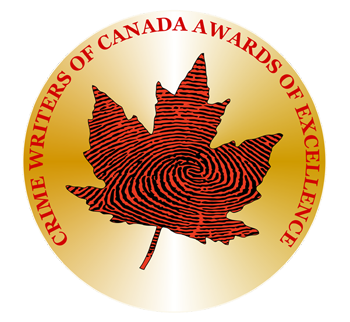About the CWC Awards of Excellence
Crime Writers of Canada Awards of Excellence were established in 1984 and are presented annually by the CWC. The Awards are for CRIME WRITING and are not restricted to mystery writing. Crime-writing encompasses far more than the traditional whodunit. The crime genre includes crime, detective, espionage, mystery, suspense, and thriller writing, as well as fictional or factual accounts of criminal doings and crime-themed literary works.
The Awards are presented annually and are open to permanent residents of Canada and Canadian citizens living abroad.
The categories for the 2026 Awards are:
- The Peter Robinson Award for Best Crime Novel with a $1000 prize
- Best Crime First Novel, sponsored by Melodie Campbell with a $1000 prize
- Best Crime Novel Set in Canada sponsored by Shaftesbury with a $500 prize
- The Whodunit Award for Best Traditional Mystery sponsored by Jane Doe with a $500 prize
- Best Crime Short Story with a $200 prize
- The Best French Language Crime Book sponsored by Carrick Publishing with a $500 prize
- Best Juvenile/YA Crime Book sponsored by Superior Shores Press with a $250 prize
- The Brass Knuckles Award for Best Nonfiction Crime Book sponsored by David Reid Simpson Law Firm (Hamilton) with a $300 prize
- Best Unpublished Crime Novel manuscript written by an unpublished author sponsored by ECW Press with a $500 prize
2026 Category Note: The Best Crime Novella category is not available for submissions this year. It will return for the 2027 awards cycle, which will accept novellas published in both 2025 and 2026.
SUBMISSION RULES SUBMIT YOUR ENTRY
For more information about the annual awards, please contact us at awards@crimewriterscanada.com
To view the current press release for the awards, click here.
Shortlist Announced: April 24th, 2026
Winners Announced: May 29th, 2026
CWC would like the thank our sponsors for their support, as well as the publishers and authors without whom there would be no Crime Writers of Canada Awards of Excellence.



